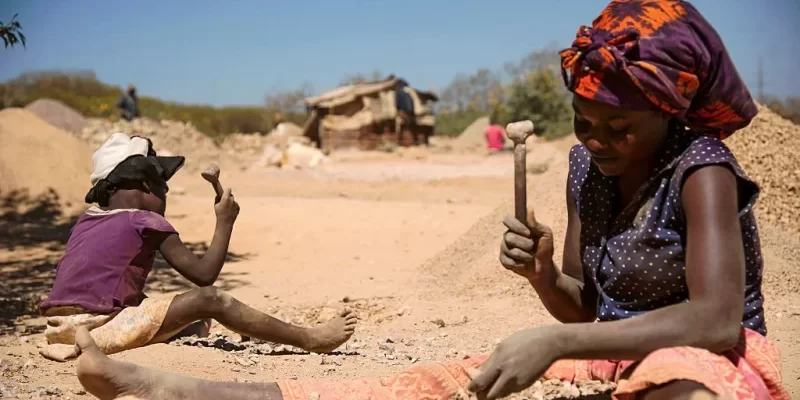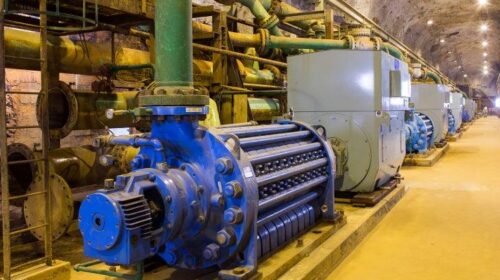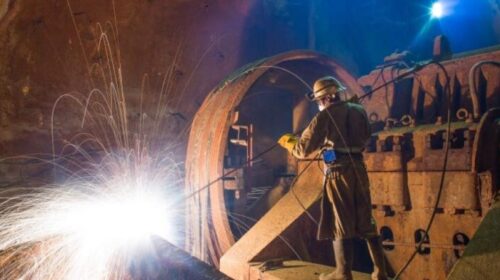Families Depend on Income from Child Labour in DRC’s Cobalt Mines to Stave Off Hunger
Amidst soaring expenses, countless families find it increasingly challenging to make ends meet, leaving many to suffer from hunger. In dire circumstances, children are compelled to work to contribute to their family’s income, leading to a dependence on child labor to cover basic necessities like food, clothing, and school fees.
A recent research report titled “How Households Depend on Children’s Income: The Case for Improving Women’s Livelihoods to Eliminate Child Labor in Democratic Republic of Congo’s Cobalt Sector,” conducted by IMPACT reveals that women’s income plays a pivotal role in sustaining families. When mothers face hardships, their children step in to assist.
Some children are motivated by their parents, while others follow their siblings, friends, and neighbors into the workforce.
The report is complemented by a multimedia feature called “Meet Gloria” which narrates the story of an artisanal cobalt miner in DRC who works alongside her children.
“Children’s health, safety, and well-being must take precedence. Efforts to address child labor in the cobalt supply chain should not inadvertently push children into other mine sites or precarious situations but should instead address the root causes of their work,” emphasized Joanne Lebert, IMPACT’s Executive Director.
Artisanal cobalt mining offers the highest income opportunities for children and other community members, with children earning up to $2.50 USD each per day. Usually, children give their earnings to their mothers, who utilize it for basic household needs such as food.
Despite the government’s pledge to provide free education, parents are still burdened with fees to cover teacher salaries and school operating costs.
Consequently, young children are expelled from school due to unpaid fees, leaving mothers with limited childcare options. Many mothers have no choice but to bring their young children to the mine site since they cannot leave them home alone.
“We heard from many mothers that they wished for a different life for their children, but they felt backed into a corner. Artisanal cobalt mining has the potential to stimulate economic development for DRC and its communities.
However, we must invest in women artisanal cobalt miners to ensure they can provide for their families and realize this potential,” said Lebert.
Similar to their children, artisanal cobalt mining is the preferred source of income for women in the region. Women opt for mining as it offers the highest earnings, provides cash at the end of each day, and requires minimal investment, training, or skills. Nonetheless, gender inequality prevails at mine sites, with women often relegated to the lowest-paid roles, such as washing ore. They also report being cheated on mineral prices and facing restrictions in accessing certain mine sites.
To address child labor, IMPACT’s research highlights the need to increase the income of the main breadwinners—the women. Women in the artisanal cobalt mining sector require:
.Skills and tools to take on higher-paid roles within mine sites.
.Support in terms of fair pricing, health and safety measures, and community savings.
.Inclusion in decision-making processes at home, mine sites, and within communities.
.Access to women-led organizations, including cooperatives or mining associations.
IMPACT advocates for investments in locally led women’s programs as essential complementary measures to responsible sourcing projects in the cobalt industry.
Cobalt’s widespread use in electronics, including electric vehicle batteries, has led to a surge in demand for the mineral, making it a critical component in the clean energy transition. More than 70 percent of cobalt is sourced from DRC, with an estimated 30% attributed to artisanal miners.
![]()





